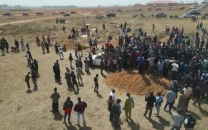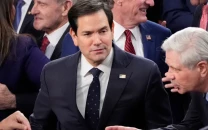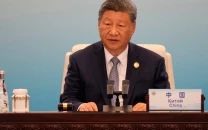The India-China stand-off
The Chinese must withdraw and return to the status quo before their leader's upcoming visit.

The writer is a consultant based in New Delhi, where she writes for Business Standard and blogs for The Times of India
According to Khurshid, just because the face has been temporarily scarred by this eruption, doesn’t mean it will remain so permanently. Khurshid has decided to go ahead with his visit to Beijing on May 9, signalling that Delhi wants to give Beijing another chance to turn back its troops from their 19-odd kilometre transgression across the Line of Actual Control (LAC) into India. This is a mature thing to do. Both countries have to realise that 2013 is hardly 1962, when Indian troops lost to the Chinese on the icy fields of eastern Ladakh and fought pitched battles some 4,000km away in the eastern sector, now known as Arunachal Pradesh.
Today, both India and China are new countries, bound together by the umbilical cord of $72 billion in annual trade. Indian minerals are shipped to China to make steel — although some controls have been recently imposed — and Chinese goods, from idols of Hindu gods like Ganesh and Lakshmi to heavy engineering equipment for the power sector, as well as trade and investment in the telecom sector, are also growing by leaps and bounds.
There is a second reason why Delhi is hoping reason will displace the current tense, eyeball-to-eyeball situation in the Depsang area in Ladakh: Chinese premier Li Keqiang announced that he will pay his first visit abroad as prime minister to India on May 20. This was meant to signal China’s interest in revamping relations with a fellow Asian power and put it on a par with relations with Europe and the US. Can Comrade Li come to India when Chinese troops have camped 19km inside Indian territory, notwithstanding the different interpretations of the LAC? Certainly not, which is why Khurshid’s visit to Beijing on May 9 will allow both sides to look at several face-saving ideas that accompany a return to status quo.
Clearly, this is as good a time as any for both sides to seriously look at settling the border issue, just over 4,000km from Jammu and Kashmir in the west to Arunachal Pradesh in the east, but it is common sense that the status quo ante must be maintained before that can happen. Still, it is in this light of China’s growing importance not only in India but across South Asia that the recent imbroglio between must be seen.
In Pakistan, the “all-weather relationship” with China has been strengthened by the latter taking control of the Gwadar port. In Maldives, the eviction late last year of the Indian company, GMR, was followed by the Chinese offer to strengthen a security relationship with Male. In Sri Lanka, the Chinese are building roads and other infrastructure. In Nepal, former prime minister Pushpa Kumar Dahal recently called upon China to develop roads and hydropower facilities and develop the birthplace of the Buddha at Lumbini (this has raised Indian eyebrows). In Bangladesh, the Chinese have offered to develop the Chittagong port. And in Myanmar, the presence of President Thein Sein at the Boao Forum earlier in April and his meeting with Chinese President Xi Jinping signals that Beijing is still Myanmar’s most important partner. Interestingly, India is doing to China’s neighbourhood what China has been doing to South Asia. In recent years, India has ramped up engagement with Japan, South Korea, Vietnam and Australia, which hope to balance their separate strategic partnerships with India with its deep-rooted economic engagement with China.
The recent crossing of Chinese troops inside Indian territory has an older context: in 1962, Chinese troops took large parts of Arunachal Pradesh in a short time but equally soon returned to its positions on its own side of the McMahon Line, unable to maintain supply lines. In Aksai Chin, on the other hand, Chinese PLA troops fought hard to take the region because it was integral to its strategy to keep control over neighbouring Tibet. Today, as India begins to build and modernise infrastructure near the Line of Actual Control for the first time since 1962, the Chinese feel that the Indian presence is too close for comfort. The Chinese must withdraw and return to the status quo. Too much is at stake in the relationship to throw it away over a region in which hardly a blade of grass grows.
Published in The Express Tribune, May 5th, 2013.



















COMMENTS
Comments are moderated and generally will be posted if they are on-topic and not abusive.
For more information, please see our Comments FAQ